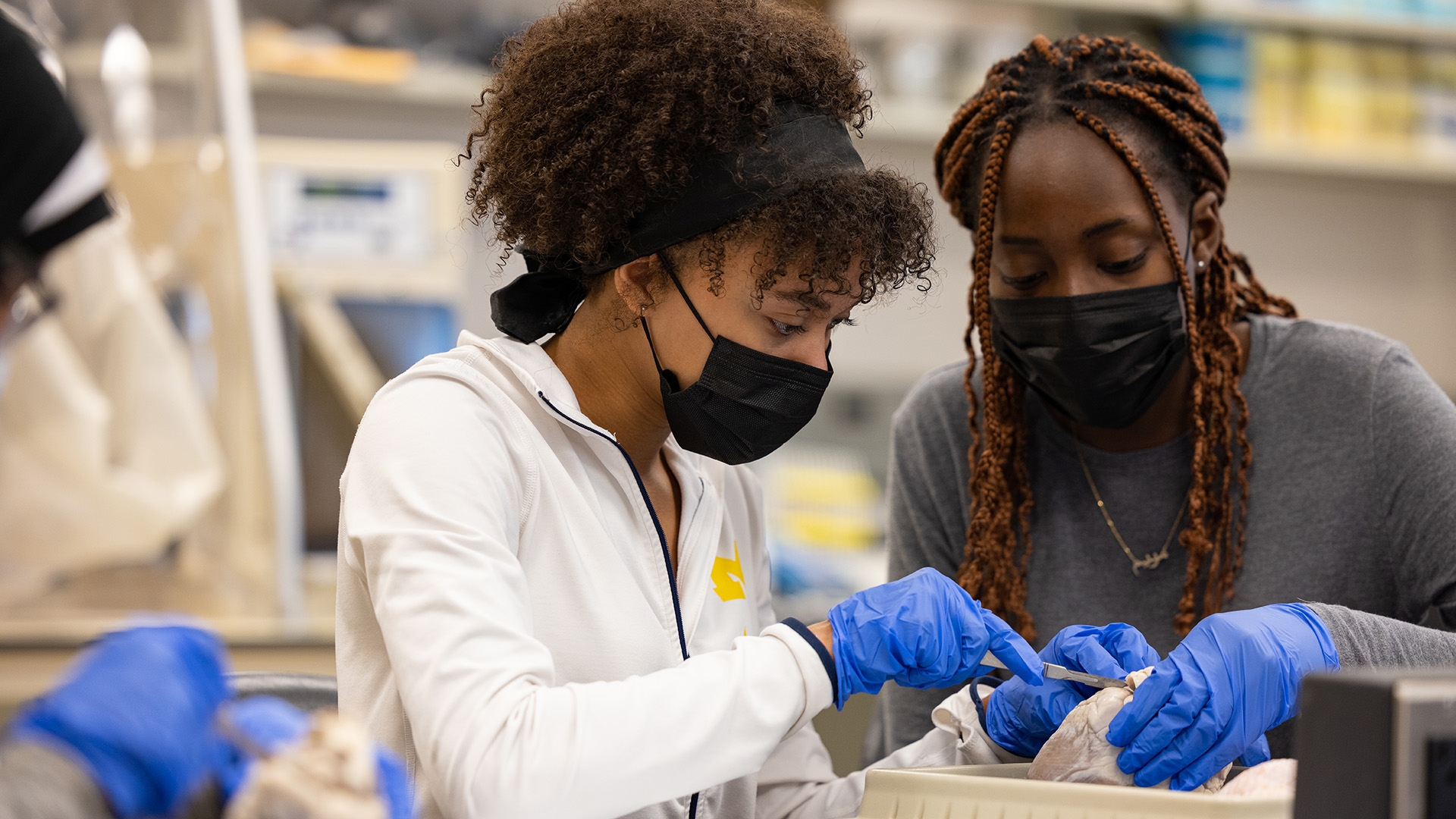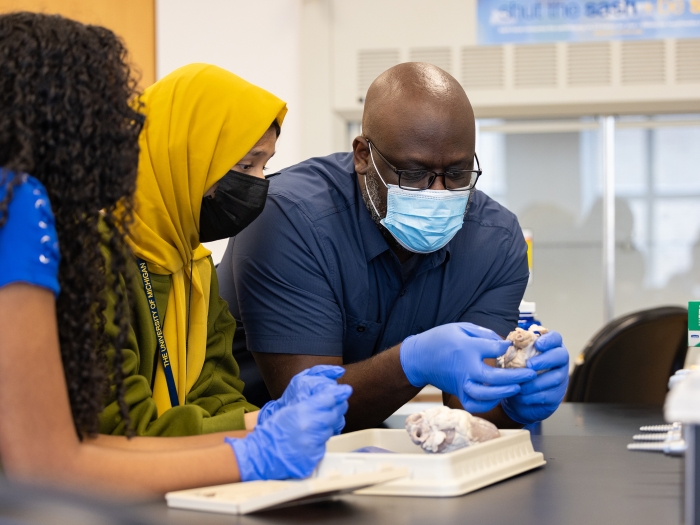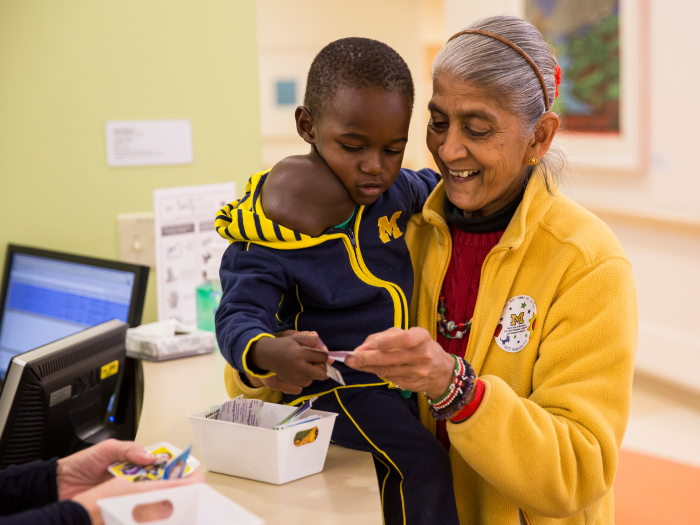Diversity of people, thoughts, approaches, and ideals fuel our progress and are a crucial component in our mission to make groundbreaking discoveries that drive life-changing medicine.


Presenting the Michigan Medicine DEI 2.0 Strategic Plan, our blueprint for a future where every member of our community not only feels seen and heard but thrives in an environment rich in diversity, and bound by equity and inclusion.
We take bold steps forward, embodying a commitment that transcends the realms of academia and healthcare, fostering a space where diversity is celebrated, equity is realized, and inclusion is felt palpably across all spheres of Michigan Medicine. Our strategy optimizes existing successful initiatives, aligning them under the principle of “Alignment over Addition,” ensuring potent, sustainable impact without diluting focus or resources. Embark on this insightful journey with us through the full DEI 2.0 Strategic Plan and join us in sculpting a future where every voice is heard, every identity is celebrated, and every individual belongs.
The Office for Health Equity and Inclusion (OHEI) develops mechanisms for inclusion, diversity, and cultural sensitivity among community members and faculty, staff and learners at Michigan Medicine.
We are committed to cultivating an inclusive health environment where all members of the Michigan Medicine community are empowered, included and known. If you are interested in viewing DEI-related presentations and events, click on the link to the right:

The Office for Health Equity and Inclusion provides DEI-related training for Michigan Medicine faculty and staff and community members.

The Office for Health Equity and Inclusion provides professional development and networking opportunities for members of the Michigan Medicine community, including faculty, staff, house officers, and fellows.

Michigan Medicine’s pathways programs support students by providing diverse opportunities at every level of education. The Office for Health Equity and Inclusion offers programming for students at each step along the health science and medical career pathway: middle school, high school, undergraduate education, and medical school and graduate education.

We provide support, and seek to improve the health and well-being, of our patients and community members.
We need to engage with each other across cultures, to remain diligent in creating a health system where all people can thrive, to exhibit strength and sustainability in our DEI and anti-racism efforts, and remain determined in cultivating a safe and inclusive environment for all who work, learn, and heal at our institution.

Dr. Gifty Kwakye, MD, MPH, OHEI Faculty Director, Medical School Programs; Associate Professor of Surgery, University of Michigan Medical School.
For the fourth year in a row, the U-M Medical School received INSIGHT into Diversity’s Health Professions Higher Education Excellence in Diversity (HEED) Award, a national honor recognizing U.S. colleges and universities that demonstrate an outstanding commitment to diversity and inclusion.





